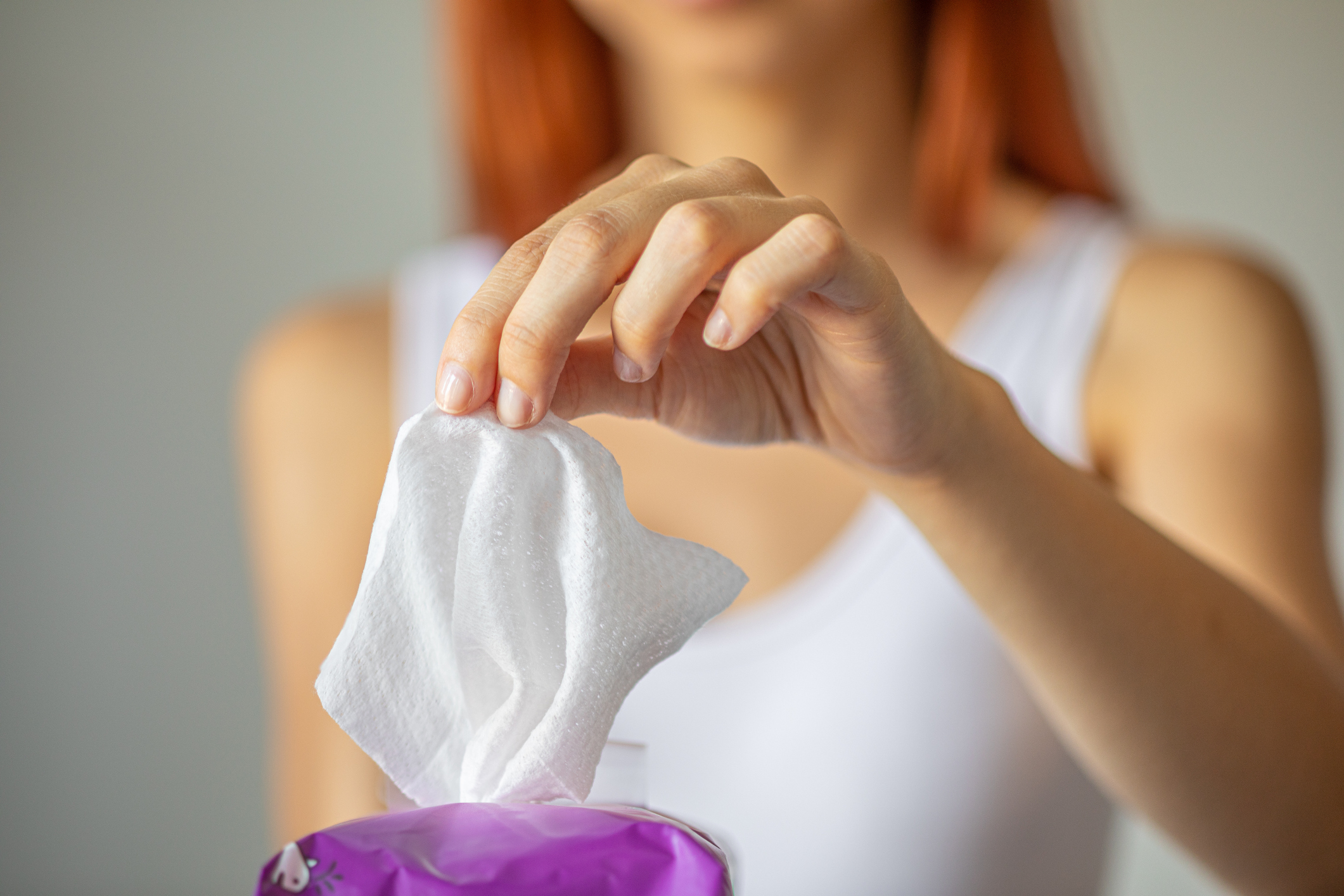Get Easy Health Digest™ in your inbox and don’t miss a thing when you subscribe today. Plus, get the free bonus report, Mother Nature’s Tips, Tricks and Remedies for Cholesterol, Blood Pressure & Blood Sugar as my way of saying welcome to the community!
How to correctly disinfect with wipes during cold and virus season

During cold and virus season, part of my routine is to take disinfecting wipes and go over all the surfaces in my house that are touched by everyone throughout the day. I try to do this daily if we end up with a virus of some sort making it’s way through our household, and at least twice weekly just for good measure when we’re well.
Doesn’t seem that complicated, right? Just take a wipe and wipe down the counters, doorknobs, light switches and stair banisters. Throw away the wipe, and call it good.
Not so fast. Believe it or not, there’s more to it than that.
This is important because most of us aren’t disinfecting sufficiently. There are things you should be doing to make sure you get the most disinfecting power possible out of those wipes.
3 do’s for using disinfectant wipes
- Read the directions. You mean there’s more to it than just pull one out and start wiping? Yep… Some wipes are only approved to kill bacteria, not viruses. Those will contain benzalkonium chloride, a chemical that is primarily meant to kill bacteria and may kill a few viruses. Wipes that say “disinfectant” on the label will kill mold, bacteria and viruses.
- Let surfaces dry on their own. Product labels will actually tell you how long a surface needs to stay wet in order for the disinfectant to work. So will the EPA website. It could be anywhere from 15 seconds to 10 minutes, so resist the urge to wipe your counter dry with a paper towel after disinfecting.
- Clean surfaces before using disinfectant wipes. A really grimy surface can make it hard for the disinfectant to do its job. Wash with soap and warm water, then disinfect.
8 don’ts when using disinfectant wipes
- Don’t use wipes to clean your hands. Some antibacterial wipes might be OK, but disinfectant wipes could cause an allergic reaction or make your skin red, itchy and swollen (contact dermatitis).
- Don’t use wipes on soft surfaces. The coronavirus tends to lurk on hard, non-porous surfaces like plastic and steel. Use your disinfecting wipes on these surfaces. Using them on things like upholstery or carpet won’t do much good since those surfaces suck up moisture from the wipes and don’t stay wet long enough for disinfecting chemicals to work.
- Don’t use them to clean toys. Kids put everything in their mouths, and you certainly don’t want them eating disinfecting chemicals. Warm, soapy water or a run in the dishwasher will do just fine.
- Don’t clean fruits or vegetables with them. A quick swipe may seem harmless, but it’s not. Wash your produce under warm running water. You can use a clean produce brush for an extra scrub. Dry with a clean cloth or paper towel when you’re done.
- Don’t flush them down the toilet. Not only will you have major plumbing problems, but you could cause an overflow that is full of germs and possibly coronavirus shed from feces.
- Don’t keep them in the heat. Any place where the temperature is consistently above 70 degrees or so will cause your wipes to dry out and lose all of their disinfecting power.
- Don’t use them on pets or their dishes. Same as with kids, the chemicals in disinfecting wipes can seriously harm your pet If your dog or cat gets hold of some wipes and chews them, call your vet or the ASPCA Animal Poison Control Center at 888-426-4435.
- Don’t use them to clean your phone. At least, not too often. It could damage the fingerprint-resistant coating on the phone’s surface. You may want to invest in a wipeable covering for your phone. Be careful about getting moisture from the wipes near any openings in the phone. And never use anything containing bleach.
Editor’s note: Regain your health and enjoy a full, vibrant life by defeating the real culprits of premature aging and sickness — excessive, damaging acid in your body! The truth is when you’re alkaline, wellness thrives and sickness takes a dive. Click here to discover The Alkaline Secret to Ultimate Vitality!
Sources:













